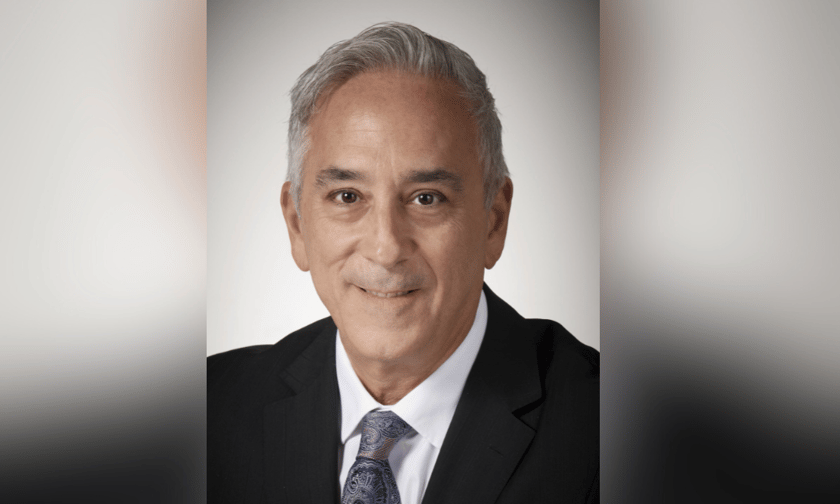

Unlicensed scammers are posing as brokers, using social media and forged policies to trick consumers into buying fake insurance - leaving them uninsured and financially exposed.
The spike in digital fraud has brought a surge in ghost broking: scams where fraudsters impersonate legitimate insurance professionals to sell fake or manipulated policies. According to Aviva Canada, fraudulent claims jumped 39% between 2022 and 2023. These scams often target vulnerable consumers through online ads, particularly on platforms like Facebook, where deceptive offers can look legitimate.
Patrick Ballantyne (pictured), RIBO CEO and CISRO Chair, has seen the damage these fraudsters can cause. He takes issue with the very name "ghost brokers," arguing it gives these individuals more legitimacy than they deserve.
“It’s too bad we call them ghost brokers because they’re not brokers at all,” Ballantyne said. “They’re something else altogether. It feels like fraud to me. They’re not brokers in any way, shape or form, and by calling them that, I feel like we’re doing a disservice to all those legitimately licensed brokers.”
Ghost brokers employ a range of tactics to mislead consumers. In some cases, they forge documents that appear to be legitimate insurance policies. In others, they manipulate genuine ones—altering details or cancelling policies after the consumer has paid. Victims are often unaware they lack coverage until it's too late.
“Consumers can really be left with invalid coverage, with financial losses,” Ballantyne said. “They go to great lengths to fool consumers.”
With online platforms providing easy access to potential victims, social media has become a common hunting ground for ghost brokers. Ballantyne noted that certain demographics may be more vulnerable than others, especially when targeted through seemingly harmless Facebook ads or online forums.
“I think it is most commonly seen [online] as a Facebook ad or something like that,” he said.
In response, regulatory bodies and industry organizations are expanding their efforts to protect the public. Education is a central strategy, with campaigns like Fraud Prevention Month helping raise awareness about how consumers can detect and avoid fraudulent brokers.
“Consumer awareness is absolutely the key thing here,” Ballantyne said. “It’s an annual campaign that really helps to educate consumers, to help members of the public be a bit more mindful, recognize, reject, and ultimately report what might be fraud.”
Organizations such as the Canadian Insurance Services Regulatory Organizations (CISRO) are equipping consumers with tools like the “Insurance Fraud Checklist,” which offers practical steps for identifying and reporting fraud. These include verifying the broker’s licensing status and understanding the terms of their insurance policy.
“It outlines how consumers are best able to recognize and avoid and report insurance fraud,” Ballantyne said. “Whether it’s through verifying licensing, understanding the policy, or protecting their personal information.”
Verification remains one of the simplest and most effective safeguards. Ballantyne urged consumers to confirm a broker’s credentials before committing to any agreement.
“At RIBO, we have a search tool on our website where you can determine whether somebody is properly licensed with us,” he said. “That is probably the number-one thing a consumer could do to protect themselves.”
Regulatory bodies are also reinforcing their oversight through national associations. While CISRO oversees brokers and agents, the Canadian Council of Insurance Regulators (CCIR) focuses on insurers. Together, these organizations create conduct guidelines and promote fair treatment of consumers.
“Our collaboration begins with the promotion of appropriate conduct,” Ballantyne said. “Whether it’s through a code of conduct or agreed-upon expectations for those operating in the sector.”
For those wanting to go a step further, Ballantyne recommended using the Canadian Insurance Regulators Disciplinary Actions Database (CIRDA), which tracks regulatory decisions and sanctions across the country.
“You can see whether or not somebody you’re dealing with has been sanctioned in any way,” he said.
Even with these resources, the lure of low-cost insurance still draws people in. Ballantyne cautions that unusually cheap offers should be treated with skepticism.
“If it seems too good to be true, it probably is,” he warns. “A broker or an agent will be expected to meet with the client—either online or in person—understand their particular situation, where they live, where they're driving, if they’re driving to work, if there are kids involved.”
Ultimately, the responsibility lies with both consumers and regulators to make sure only licensed professionals are handling insurance matters.
“If somebody is just telling you, ‘I can get you auto insurance’ for whatever amount, and it seems a lot cheaper than what you might be getting quotes for, there is likely a reason for that,” Ballantyne says. “It’s an indicator that you should be looking into [them].”
